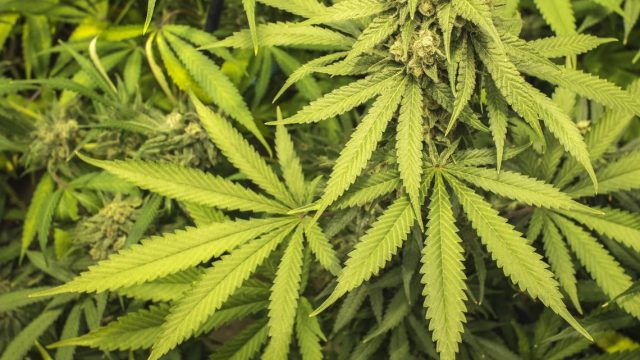Why Are So Few North Dakotans Seeking Pardons for Marijuana Convictions?

The State of North Dakota has created a new, streamlined process through which those with minor marijuana-related convictions can apply for a pardon.
A pardon removes the conviction from their records, which in turn would remove a barrier some face when it comes to, say, getting a job.
Attorney General Wayne Stenehjem is one member of a constitutionally-established board that makes recommendations on pardons to the Governor. The board handles all manner of requests, from minor crimes up to homicides, and doesn’t issue many pardons. Stenehjem told me in a July interview he expected pardons for minor convictions for things like possessing or ingesting marijuana, or possessing marijuana paraphernalia, to become routine parts of the board’s “consent agenda.”
“We could be looking at upward of 175 to 179 thousand who have this issue,” he told me.
Months later, though, there hasn’t exactly been an influx of people seeking pardons. According to the Associated Press, “only about three dozen people have applied to date.”
[mks_pullquote align=”right” width=”300″ size=”24″ bg_color=”#ffffff” txt_color=”#000000″]…we’re probably better served in not pursuing conviction of marijuana users in the first place.[/mks_pullquote]
“I’m rather surprised that so few people have applied,” Stenehjem told the AP. “We will look at ways to get word out.”
It may well be that people aren’t aware of this change to state law yet. Or, if they are aware, they may be thinking it’s more hassle than it’s worth. This week South Dakota launched a national debate over the effectiveness of government public service announcements with a weird campaign about meth addiction, but there is proper time and place for that kind of taxpayer-funded marketing.
It would be appropriate for North Dakota to invest some time and money into making people aware of this pardon process.
Beyond the issue of awareness, however, why is it so few have applied? Pro-marijuana activists have been including, in their case for various forms of legalization, the idea that convictions for minor pot offenses are destroying lives. If those convictions really are a significant burden for a lot of people, shouldn’t we see an influx of people seeking pardons?
I suspect there are a couple of things going on.
For one, a lot of people who have a minor marijuana charge on their record may also have more serious charges not eligible for an extradited pardon. Do you go through the time to get a minor marijuana infraction removed from your record if you’ve also got a felony conviction? Maybe not.
For another, those with just a minor pot conviction may not see it as all that much of a burden. If they’ve already been living with it for a while, whatever obstacle it may have represented to happiness and prosperity may be past. These people, too, may not see much value in a pardon. Especially since public attitudes about marijuana, even in a relatively conservative place like North Dakota, have been changing rapidly. I mean, the North Dakota Young Republicans just sided with legalizing recreational marijuana at a recent meeting.
The Republicans.
A marijuana conviction, at least for something minor like possession, is no longer quite the scarlet letter it once was.
I’m glad we’ve instituted this pardon process. “This is a fantastic policy and I wish people would be willing to get informed,” activist David Owen of Legalize ND told the AP. “The problem is a lot of people are uneducated on the issue.”
That’s all true, as far as it goes, but in the long term (as I’m sure Owen would agree) we’re probably better served in not pursuing conviction of marijuana users in the first place.




